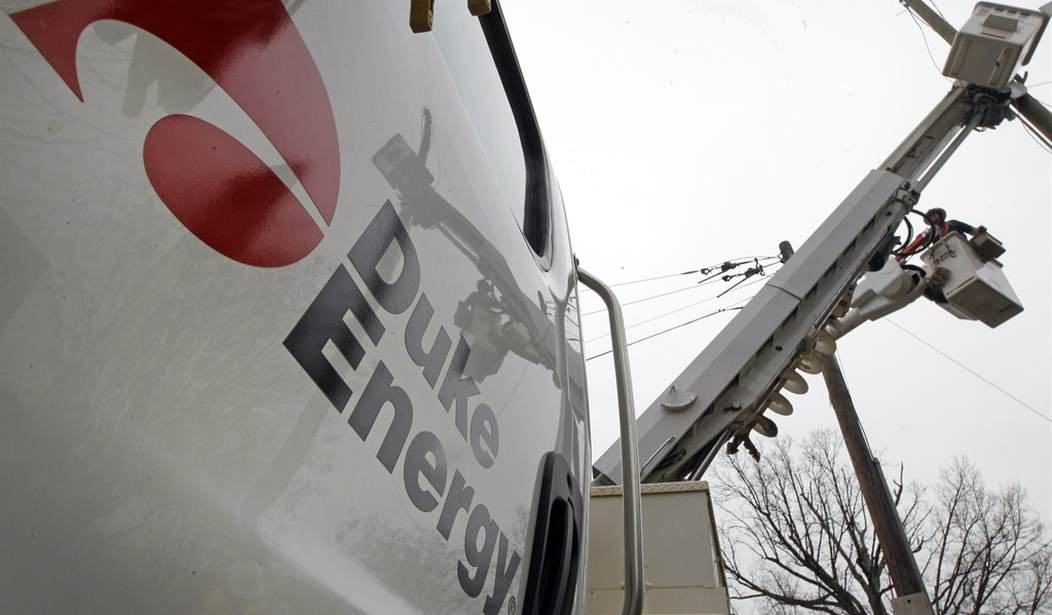Last year on the morning before Christmas, just as much of the country was preparing food for a holiday dinner that night or prepping for the next day as they welcomed family and guests to stay for the holiday weekend, Duke Energy in the Carolinas issued a jarring announcement to their hundreds of thousands of customers that they would begin imposing rolling power outages immediately.
The outages were desperately needed because of the strain on the electric grid caused by the extreme weather that had crippled much of the country in the previous days. By noon, 340,000 Duke Energy customers were without power, and by Christmas morning, that number hit 500,000 at one point, with most of the outages lasting anywhere from a half-hour to several hours as the temperatures dipped into the low teens both days.
It could have been worse.
Two weeks ago, the North American Electric Reliability Corporation, the regulator that monitors the nation's electrical grid, warned in their staff report on Winter Storm Elliot that this winter, a large swath of the country that extends from Texas up to the Canadian border could pass that "worse" stage. The group said the U.S. power grid is not prepared to handle extreme winter conditions such as prolonged arctic blasts or major snowstorms.
In NERP's report, the regulators assessed that despite promises from our politicians, our power grid is fraying under the stress of underinvestment.
"Much of North America is at an elevated risk of insufficient energy supplies this winter and is highly exposed to risks of energy emergencies in extreme winter conditions," said the report.
NERC officials said several factors have contributed to this dire situation that all come to the same conclusion: We are not bringing sufficient new power online to meet demand.
Recommended
In short, we have too much power scheduled to go offline and not enough coming online.
The Interstate Natural Gas Association of America said the Staff Report on Winter Storm Elliott illustrates that members of INGAA took decisive, real-time actions to maintain system integrity in the face of the significant challenges presented during the storm.
The authors of the NERC report warn that if there is a winter storm in the magnitude of Elliot last winter, then at best, we are looking at a repeat of outages that we saw last Christmas, not just in the Carolinas but all around the country.
And it's not just Christmas people should be worried about; NERC warned that half of the country and part of Canada could fall short of electricity throughout the winter because of the lack of infrastructure built for natural gas.
Why aren't there enough natural gas lines in our infrastructure? Politics definitely plays a part in that, specifically climate change or climate-justice politics.
Last month, a sweeping report from the National Academies of Sciences, Engineering, and Medicine said for the United States to reach its ambitious climate goals outlined by the Biden administration, states and municipalities should adopt bans on new gas lines in places where they have not been previously built.
There is a consequence to that suggestion that could once again contribute to the same disruption or worse if we experience a prolonged, wide-range cold snap.
NERC said that extreme cold weather events that have occurred recently have shown that energy delivery disruptions can have devastating consequences for electric and gas consumers in impacted areas.
The NERC report included recommendations to improve coordination among the entire gas supply chain and with electric utilities, including a North American Energy Standards Board effort to enhance situational awareness of production losses and when pipelines' efforts to address those losses become unsustainable.
INGAA said its members look forward to working with stakeholders to identify potential improvements in this area.
"But more communication will not solve the problems created by extreme weather like Winter Storm Elliott," said INGAA in a statement, adding, "The United States needs more natural gas pipeline capacity to maintain a resilient system that affords homes and the power grid access to multiple sources of this critical fuel."

























Join the conversation as a VIP Member